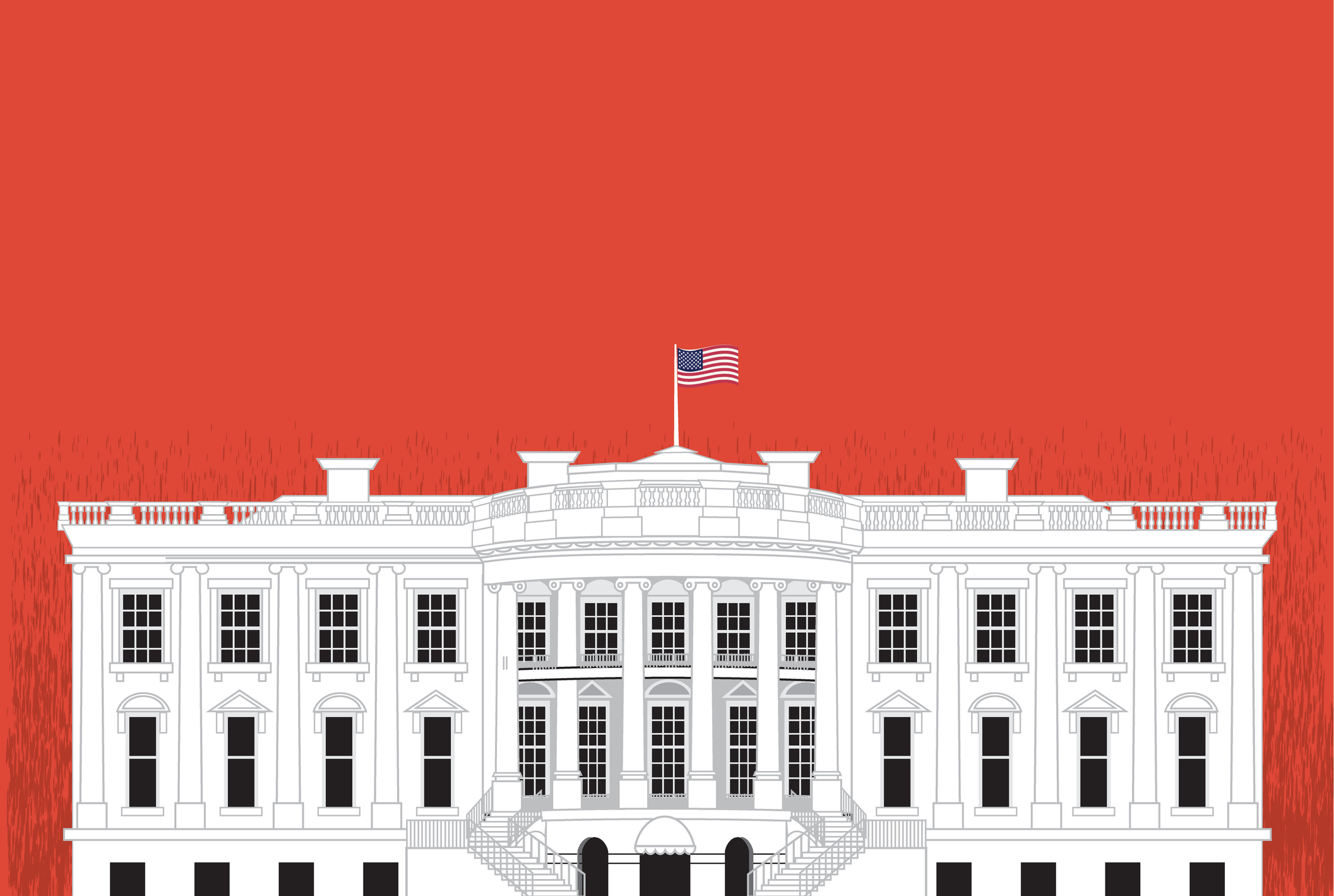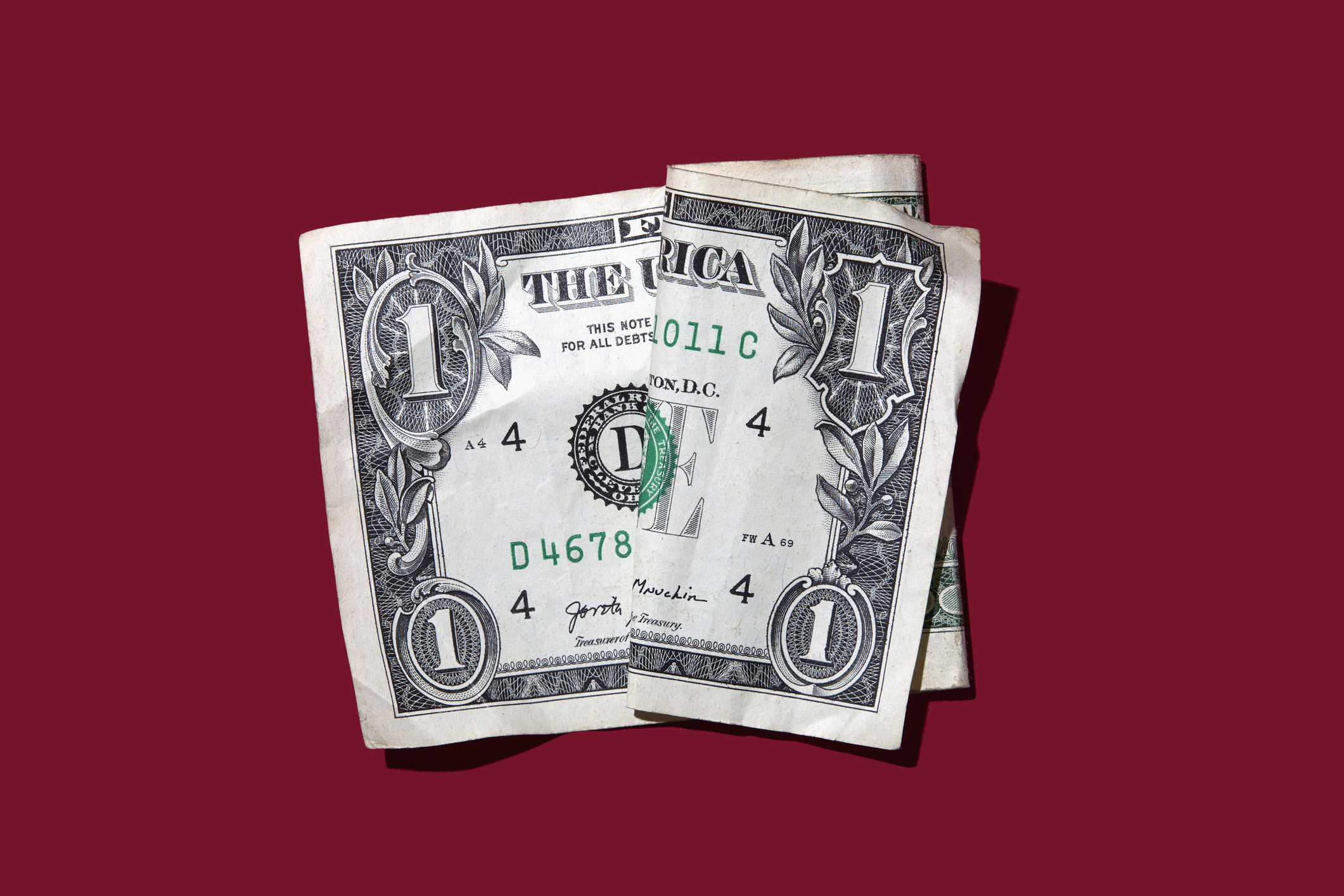Trump Tax Bill 2025: What Changed and How It Affects Your Taxes
From standard deduction amounts to tax brackets and Medicaid cuts, here’s what individual filers need to know about tax changes in Trump's "big beautiful bill."


Profit and prosper with the best of Kiplinger's advice on investing, taxes, retirement, personal finance and much more. Delivered daily. Enter your email in the box and click Sign Me Up.
You are now subscribed
Your newsletter sign-up was successful
Want to add more newsletters?
Have you heard about the tax and spending megabill that President Donald Trump signed into law on July 4, 2025?
This new law (Public Law 119-21 (PDF) and referred to by Trump as the One Big Beautiful Bill reshapes many tax rules on which individuals rely. But understanding the various changes and their implications for taxpayers can be confusing.
Essentially, the tax bill extends many of the lower tax rates and increased standard deduction base amounts from the 2017 Tax Cuts and Jobs Act (TCJA), which was enacted during Trump's first term. As a result, some concerns about "tax cliffs" — key provisions initially set to expire at the end of this year — have been alleviated.
From just $107.88 $24.99 for Kiplinger Personal Finance
Become a smarter, better informed investor. Subscribe from just $107.88 $24.99, plus get up to 4 Special Issues

Sign up for Kiplinger’s Free Newsletters
Profit and prosper with the best of expert advice on investing, taxes, retirement, personal finance and more - straight to your e-mail.
Profit and prosper with the best of expert advice - straight to your e-mail.
The legislation introduces several new temporary tax deductions and credits, including those related to tips and overtime pay. However, the bill also eliminates or plans to phase out certain incentives, including the federal EV tax credit and other clean energy credits.
Some changes are effective as of this year (affecting returns typically filed in early 2026), while others don't come into play until 2026 (impacting returns filed in early 2027).
- Cost-wise, the Congressional Budget Office (CBO) projects that this law will increase federal deficits by approximately $4.1 trillion in the next decade. That includes about $700 billion in added interest costs on federal debt.
- The law introduces substantial cuts to Medicaid and the Supplemental Nutrition Assistance Program (SNAP, formerly known as food stamps), which provide health and food support to millions of people in the United States.
It’s a lot to digest, but we’ll dive into many of the changes in more detail below, beginning with some key points.
New Trump Tax Bill
Trump tax bill summary
Congress passed the massive bill using the budget reconciliation process. That approach allows a single party, in this case, Republicans, to approve certain legislation with a simple majority.
GOP members in the U.S. Senate narrowly approved the bill after a tie-breaking vote from Vice President JD Vance. Republicans in the U.S. House of Representatives also approved the bill along party lines.
The megalegislation is considered by many Republicans to be the signature fiscal effort of Trump's second term. Here's an overview of some key tax provisions.
- The seven tax brackets and their lowered rates stay put for now, so taxpayers won’t suddenly see higher income tax rates creep back up as was feared after 2025.
- Similarly, the standard deduction remains nearly double what it was before 2017 and will continue to be adjusted each year for inflation. (For 2025, that’s $15,750 for singles and more than $31,000 for couples filing jointly.)
According to separate analyses by the CBO and the Joint Committee on Taxation (JCT), the benefits from this tax law aren’t spread evenly.
People with higher incomes are expected to receive the most significant tax breaks, while many lower-income households might see their overall resources decrease.
Middle-income families could experience small gains or losses, depending on their individual circumstances.

Other key points:
- The state and local tax (SALT) deduction cap, which limits how much you can deduct for state and local taxes, rises sharply (subject to income limits) from $10,000 to $40,000 for 2025 and stays elevated through 2029 before dropping back in 2030.
- New temporary deductions allow taxpayers to deduct interest on car loans for new U.S.-assembled vehicles (up to $10,000 per year) purchased after 2024, with income phaseouts and expiration at the end of 2028.
- Employees in traditionally tipped jobs, as specified by the U.S. Treasury and IRS, can exclude up to $25,000 in tips from federal income tax through 2028, subject to income limits and specific eligibility requirements.
- Overtime pay up to $12,500 (or $25,000 for joint filers) can be deducted in the same period, again with income phaseouts.
- The federal Child Tax Credit of $2,200 per child remains, but requires a valid Social Security number.
- New child savings accounts (called Trump accounts) start with a $1,000 federal deposit for kids born in 2025–2028 and allow further yearly contributions subject to limits and rules.
- Increased estate tax exemption, raising the threshold to $15 million beginning in 2026, indexed to inflation.
- Meanwhile, Medicaid and SNAP funding take significant hits, resulting in reduced eligibility or enrollment, increased work requirements, and lower funding levels. Some expect millions to lose health care coverage or food assistance because of those program cuts.
Here’s more of what you need to know about those provisions and how they could impact your taxes.
What’s in Trump's tax bill?

Note: This is not an all-inclusive list of individual tax changes in the massive bill.
Extended individual TCJA provisions
The new megareconciliation legislation extends the TCJA’s seven individual income tax rates and brackets. Taxpayers avoid the “tax cliff” rate increases that were set to take effect after 2025 if Congress hadn’t acted.
For more information, see: 2025-2026 Federal Tax Brackets and Income Tax Rates.
The 2025 GOP tax bill also maintains the nearly doubled base standard deduction, which for 2025 is approximately $15,750 for single filers and $31,500 for married joint filers, indexed for inflation annually.
Related: Standard Deduction Changes to Know Now
Tax Feature | Pre-2025 Rules | 2025 GOP Tax Bill Changes |
|---|---|---|
Individual Income Tax Rates | TCJA rates and brackets were set to expire after 2025 | TCJA's seven individual income tax rates extended |
Standard Deduction | Nearly double under the 2017 TCJA | Maintains the nearly doubled base standard deduction from prior law, indexed annual for inflation |
Personal Exemptions | Repealed under TCJA | Remain repealed |
Estate tax exemption increase
The lifetime estate and gift tax exemption was scheduled to be reduced by half in 2026 due to looming Tax Cuts and Jobs Act (TCJA) expirations.
However, under the new Trump tax bill, the lifetime estate and gift exemption increases, as of January 1, 2026, to $15 million ($30 million for married couples).
Meanwhile, gifts given before 2026 benefit from the already-high 2017 tax exemption.
Learn More: What's the New Estate Tax Exemption Amount for 2026?
SALT deduction cap change
The SALT deduction cap is raised from $10,000 to $40,000 for the years 2025 through 2029.
As a result, taxpayers who itemize deductions can deduct a larger amount of state and local taxes (including income, sales and property taxes) from their federal taxable income.
This cap increases by 1% annually during that period but phases out for taxpayers with modified adjusted gross income (MAGI) exceeding $500,000, returning fully to $10,000 for all taxpayers starting in 2030.
Related: SALT Deduction: Three Things to Know
Aspect | Old SALT Deduction Limit | New SALT Deduction Cap |
|---|---|---|
Deduction Cap | $10,000 | $40,000 |
Effective Year | 2018-2024 | 2025-2029 |
Income Threshold for Full Limit | No specific thresholds | $500,000 and under MAGI |
Phase-out for Higher Income | N/A | Gradual reduction above $500,000 MAGI |
Reversion Year | N/A | 2030: Cap reverts to $10,000 |
New Tax Deductions

Several new deductions included in the tax and spending bill are temporary.
Car loan Interest deduction
Taxpayers can deduct interest on car loans up to $10,000 per year for new qualifying vehicles assembled in the U.S., purchased after December 31, 2024. Eligible buyers might be able to reduce their overall tax liability without itemizing deductions.
The tax break applies to passenger cars, light trucks, SUVs and motorcycles used for personal purposes.
- The deduction phases out 20% annually beginning at $100,000 MAGI for single filers and $200,000 MAGI for joint filers, with full phaseout at $150,000 and $250,000, respectively.
- Vehicle Identification Numbers (VINs) are required on tax returns.
- This deduction expires December 31, 2028.
Learn More: New Car Loan Interest Deduction: Which Buyers and Cars Qualify
'No tax on tips' deduction
Employees in traditional tipping occupations (e.g., servers, bartenders, salon workers) can exclude up to $25,000 in tips earned from federal income tax for tax years 2025–2028.
That essentially means eligible tipped workers might keep more of their earnings by paying less in federal income taxes on tips they earn through 2028. But ...
- Income phaseouts start at $150,000 (single) and $300,000 (joint).
- Self-employed individuals in tipped trades are excluded.
- Payroll and state taxes still apply to tips.
See: 'No Tax on Tips' Approved: What You Need to Know for more information.
Overtime pay tax deduction
A deduction for overtime pay of up to $12,500 (single) and $25,000 (joint) is allowed from 2025 to 2028, subject to the same income phaseouts as the deduction for qualified tip income.
See What's Happening With Taxes on Overtime Pay? for more information.
Targeted Tax Breaks
Child Tax Credit under Trump tax law
- The Child Tax Credit (CTC) maximum is $2,200 per qualifying child, indexed to inflation starting in 2026. The refundable portion of the credit is capped at $1,700 per child.
- Valid Social Security Numbers are required for taxpayers and dependents to claim the credit.
Feature | Prior Law | New Rules under 2025 Trump Tax Law |
|---|---|---|
Credit Amount Per Eligible Child | $2,000 | $2,200 (indexed to Inflation starting in 2026) |
Refundable Portion | Up to $1,700 per child | Capped at $1,700 |
Phaseout Thresholds | $200,000 single/$400,000 joint | Maintains same phaseouts |
Social Security Number Requirement | Child must have SSN, parent filing can use an ITIN (individual taxpayer identification number) | Taxpayers and dependents must each have valid SSNs |
To learn more, see: Child Tax Credit 2025-2026: How Much Is It?
Trump Account for kids
New tax-exempt Trump accounts receive a government-seeded $1,000 for children born from 2025 to 2028, with additional nondeductible contributions capped at $5,000 per year. These funds, after age 18, can be used for education, home purchase or retirement purposes.
For more information, see: The GOP Wants to Auto-Enroll Your Child in a Trump Savings Account.
Senior Bonus Deduction (65+)
Taxpayers age 65 and older receive a bonus $6,000 deduction through 2028, phased out starting for incomes above $75,000 (single) and $150,000 (joint).
The deduction is available for eligible taxpayers whether you itemize or take the standard deduction.
For more information, see our report: New $6,000 Bonus Deduction: What It Means for Taxpayers Over Age 65.
Other 'Big Beautiful Bill' Tax Changes

1099-K threshold reporting
The GOP tax and spending bill brings back higher thresholds for 1099-K reporting from payment apps such as (but not limited to) PayPal, Venmo, Cash App, Etsy, StubHub, eBay and Airbnb.
For payments you receive for 2025 (sent to you in early 2026), you should only receive a Form 1099-K if:
- You receive more than $20,000 in gross payments and
- You conduct more than 200 transactions on a single platform within a year.
For more information, see: Another IRS 1099-K Threshold Change to Know for Your 2025 Taxes.
Health Savings Account (HSA) changes
- For HSAs, the 2025 tax law expands eligibility by allowing individuals enrolled in Bronze or Catastrophic Affordable Care Act (ACA) plans to contribute starting in 2026.
- It also permanently allows telehealth services and direct primary care fees to qualify as HSA expenses, broadening the types of health care costs that HSAs can cover.
However, other reforms like expanding eligibility for Medicare enrollees weren’t included.
What this means for most: HSAs largely retain their prior features, including triple tax advantages on contributions, growth, and qualified withdrawals.
Feature | Pre-2025 Tax Bill Rule | New Rule Starting in 2026 |
|---|---|---|
Eligibility | Only high-deductible health plans (HDHPs); excludes ACA Bronze or Catastrophic plans | Includes ACA Bronze and Catastrophic plans as eligible HDHPs |
Qualified Expenses | Includes typical medical expenses; excludes telehealth fees and direct primary care fees | Includes telehealth and direct primary care fees as HSA-eligible expenses |
Expansion | Did not include Medicare expenses | Medicare enrollees still not eligible for HSAs |
Tax Benefits | Triple tax advantage (contribution, growth and withdrawal) | Triple tax advantage unchanged |
Student loan changes under Trump
Though not tax-related, the Trump tax and spending bill also introduces a significant overhaul of federal student loan programs.
Popular income-driven repayment plans initiated under the Biden administration will be phased out, borrowing for graduate students and parents will be restricted, and some options for deferment due to economic hardship or unemployment will be eliminated.
Though recent news reports indicate that the Trump administration might follow through with processing student loan forgiveness under certain Biden-era programs.
There's more. While the pandemic-era American Rescue Plan Act (ARPA) excluded forgiven student loan amounts from federal taxable income through 2025, the Trump/GOP tax and spending bill doesn't extend that exclusion.
That means, unless Congress acts, student loan debt forgiven after December 31, 2025, will once again be considered taxable income at the federal level.
That could leave borrowers who were counting on Public Service Loan Forgiveness (PSLF) or other forgiveness programs facing an unexpected tax bill.
For more information, see: How Taxes and Student Loan Repayment Could Soon Change Under Trump.
Ending clean energy tax credits
The new tax law delivers a major shake-up to federal clean energy incentives, setting expiration dates for popular tax credits.
Homeowners planning to install rooftop solar or battery storage had until December 31, 2025, to qualify for the 30% residential solar tax credit; after that, the credit is eliminated.
To learn more, see: Homeowners Rush to Install Solar Panels.
The federal EV tax credit for new, used, and commercial clean vehicles ended for vehicles acquired and put into service after September 30, 2025.
For more information, see How the EV Tax Credit Works.
The credit for installing home electric vehicle (EV) chargers remains in effect for a period of time, expiring for equipment placed in service after June 30, 2026.
With these deadlines, some analysts say the law is expected to slow the momentum of clean energy adoption and raise the cost barrier for solar and EV upgrades.
Business provisions in the Trump tax bill
The Trump/GOP tax and spending bill impacts businesses as well. Some key changes include:
- Permanent 20% small business deduction for pass-through entities such as partnerships and sole proprietorships.
- Permanent 100% bonus depreciation and full expensing for business investments.
(A permanent lower corporate tax rate, initially set by the 2017 TCJA, remains.) Other key business provisions are summarized in the following table.
Provision | Description | Effective Date |
|---|---|---|
Bonus Depreciation | Permanent 100% bonus depreciation on qualified property placed in service after 1/19/2025 | January 20, 2025 |
Qualified Business Income Deduction (Section 199A) | Made permanent with increased deduction rate to 23%, and modified phase-in thresholds | Effective as of 2025 tax year |
Qualified Small Business Stock Gains | Increased exclusion limits and phase-in for gains exclusion based on holding period and asset thresholds | 2025 tax year onward |
Health Care and Food Benefit Cuts

Medicaid cuts and rule changes
The bill enacts the most sweeping cuts to Medicaid since the program’s 1965 inception.
The legislation reduces Medicaid funding by roughly 18% over a decade — about $600 billion to $800 billion according to the Congressional Budget Office (CBO) — through a combination of new eligibility restrictions, asset tests, and work requirements.
- Most adults, including parents of children age 14 and older, will need to work at least 80 hours a month to keep coverage, with some exceptions.
- States will be required to reassess eligibility every six months, rather than annually.
- States could also impose co-pays up to 5% of household income and require monthly income verification.
The CBO estimates that 10 million to 12 million people could lose Medicaid coverage in the next 10 years, with additional losses expected from tighter Affordable Care Act enrollment rules.
The impact is expected to fall hardest on families with low incomes, people with disabilities and rural residents.
SNAP: Shrinking food assistance benefits
The bill’s approach to the Supplemental Nutrition Assistance Program (SNAP) is equally notable.
SNAP program funding (formerly known as food stamps) will be cut by about 20%, an estimated $230 billion over 10 years.
- Work requirements are expanded to cover adults up to age 64 (up from 50), and parents with children age 14 and older.
- States will be required to shoulder a greater share of SNAP costs or risk losing federal support entirely.
Many family advocates say these changes threaten to push millions into food insecurity, especially older workers and families in high-unemployment areas.
For more information, see Medicaid and SNAP Benefits at Risk Under Trump’s Tax Bill.
Program | Spending Reduction | Key Changes and Effects | Projected Impact |
|---|---|---|---|
Medicaid | Loss of $863 billion | New work and reporting requirements, eligibility restrictions, cost-sharing increases, immigrant coverage changes and lower reimbursement rates | An estimated 10.9 million people losing coverage, with a disproportionate impact on rural and vulnerable populations |
SNAP | Loss of $295 billion | Cuts to administrative funds, tightened eligibility, new state cost-sharing based on payment error rates and reduced benefit growth tied to Thrifty Food Plan cost | Reduced food assistance for low-income families; able-bodied veterans ages 18 to 64 lose their previous work exemption, risking food aid loss for about 1.2 million veterans
|
More Tax Changes for 2026

Gambling losses tax deduction change
Starting in the 2026 tax year, the new law limits gamblers to deducting only 90% of their losses against their gambling winnings. Previously, you could deduct 100% of your losses up to your winnings, meaning you weren’t taxed on net-zero or losing years.
This change applies to all gamblers and related gambling expenses. However, as Kiplinger has reported, several bills have been introduced proposing to reverse this, so stay tuned.
To learn more, see: Gambling Loss Deduction Limit Sparks Debate.
Aspect | Old Rule (Through 2025) | New Rule (Starting 2026) |
|---|---|---|
Gambling Loss Deduction | 100% of losses are deductible up to winnings | Only 90% of losses are deductible up to winnings |
Tax Effect if Break-Even | No taxable income (losses fully offset wins) | Taxable income on 10% of losses, even if break-even |
Charitable donation tax deduction
Under the new tax law, a significant change has been introduced to charitable giving incentives.
- As of 2026, individuals who claim the standard deduction will be able to deduct up to $1,000 annually for single filers and $2,000 for joint filers in cash donations to qualified charitable organizations.
- Previously, only those who itemized deductions could benefit from the charitable donation tax deduction.
Additionally, for high-income taxpayers in the 37% tax bracket, the value of charitable deductions has been capped at 35%, meaning they can receive a maximum of 35 cents in tax savings for every $1 donated.
Feature | Before 2026 | Starting in 2026 |
|---|---|---|
Charitable Deduction for Nonitemizers | Not allowed | Allowed up to $1,000 for single filers, $2,000 for joint filers (cash donations only) |
Charitable Deduction Floor for Itemizers | No floor on deductible gifts | Must exceed 0.5% of adjusted gross income (AGI) to be deductible |
Cap on Deduction Value for High-Income Taxpayers (37% bracket) | Full value at 37% tax rate | Capped at 35% tax savings per $1 donated (max 35 cents per $1) |
Donations to Donor-Advised Funds (DAFs) and Private Foundations | Fully deductible (if itemizing) | Excluded from the new nonitemizer deduction |
For more information, see: Charitable Donation Tax Deduction: What to Know AND 3 Changes Coming to Charitable Deductions for 2026.
ACA Tax Credit expiration
The premium tax credit subsidies under Affordable Care Act (ACA) marketplace plans expired after December 31, 2025.
- Congress originally expanded these premium tax credits during the pandemic in 2021 and later extended them through the end of 2025.
- They substantially lower health insurance costs for more than 24 million people in the U.S., or roughly 7% of the population.
- Data show the tax credits have helped make coverage more affordable for a range of people, including the self-employed, small-business owners and those who lack access to employer or other coverage.
Deficit and Impact
The fiscal impact of the GOP tax bill

Proponents argue the bill’s tax cuts and spending changes will boost growth and jobs. But the numbers tell a more complicated story.
The CBO projects the bill will add about $3.3 trillion to the national debt over 10 years, even after accounting for the spending reductions and new revenue measures.
Other independent estimates, which factor in the interest on that additional debt, put the true cost closer to $4.5 trillion or more over a decade.
Public Perception
Who benefits from Trump's tax bill?
A Tax Foundation analysis shows the largest tax cuts will go to households earning $400,000 and above. The top 1% would receive a disproportionate share of benefits compared with those making $100,000 or less.
- Data show that most tax benefits will go to wealthier taxpayers, with the top 10% receiving approximately 80% of the total tax breaks.
- Meanwhile, lower-income Americans generally see fewer gains — or even lose resources — especially when cuts to Medicaid and food assistance programs like SNAP are taken into account.
- Middle-income families are expected to experience mixed results, depending on their individual circumstances.
What the polls say about the tax bill
What about the public? Some public skepticism was reflected in a CBS News/YouGov poll conducted in early June. About 47% of respondents said the bill would hurt the middle class, 54% believed it would negatively affect low-income people, and 60% expected the wealthy to benefit most.
More recent polling also shows public opinion is generally running against the bill.
According to a recent Pew Research Center poll, only 27% of Americans believe the big bill will help people like them, while 51% think it will hurt the middle class.
A Kaiser Family Foundation’s survey echoes those concerns: 56% of respondents say they're “very worried” or “somewhat worried” that the bill’s benefits will primarily go to the wealthy and corporations, rather than to ordinary families.

Because the megabill was passed by the GOP without Democratic support, the law has added to political divisions.
- Many are concerned about the hardship Medicaid and SNAP cuts could bring to vulnerable populations.
- New deductions for tips, overtime pay and car loan interest might help some taxpayers but add complexity to filing.
- Some environmental advocacy groups criticize the rollback of clean energy tax credits.
Republican lawmakers have focused on aspects of the law they believe support working families, while Democratic lawmakers often point to the high price tag and loss of medical insurance and care for millions.
Trump tax bill details: Bottom line
Understanding the fine print in the new tax law — including exactly which deductions expire when and income thresholds for phaseouts — can help you better prepare your finances and tax filings in the years ahead.
As always, consult a trusted and qualified tax professional or financial planner who can guide you and devise a strategy that fits your situation and goals.
Read More
- Income the IRS Won't Touch
- What's the Standard Deduction for 2025 and 2026
- New 2026 Income Tax Brackets Are Set: What to Know
- Trump Eyes Changes to Gambling Loss Limit
Profit and prosper with the best of Kiplinger's advice on investing, taxes, retirement, personal finance and much more. Delivered daily. Enter your email in the box and click Sign Me Up.

Kelley R. Taylor is the senior tax editor at Kiplinger.com, where she breaks down federal and state tax rules and news to help readers navigate their finances with confidence. A corporate attorney and business journalist with more than 20 years of experience, Kelley has helped taxpayers make sense of shifting U.S. tax law and policy from the Affordable Care Act (ACA) and the Tax Cuts and Jobs Act (TCJA), to SECURE 2.0, the Inflation Reduction Act, and most recently, the 2025 “Big, Beautiful Bill.” She has covered issues ranging from partnerships, carried interest, compensation and benefits, and tax‑exempt organizations to RMDs, capital gains taxes, and energy tax credits. Her award‑winning work has been featured in numerous national and specialty publications.
-
 More Tools to Build a Bond Ladder
More Tools to Build a Bond LadderVanguard aims to launch a line of target-maturity corporate bond ETFs.
-
 Why Your Pet Should Be In Your Estate Plan — Yes, Really
Why Your Pet Should Be In Your Estate Plan — Yes, ReallyIncluding your wishes in your will or in a pet trust can ensure proper care when you can’t provide it.
-
 How Much Savings Do You Actually Need to Feel Financially Secure? Start With These 3 Benchmarks
How Much Savings Do You Actually Need to Feel Financially Secure? Start With These 3 BenchmarksFrom your first $1,000 cushion to a full emergency fund, here's how to build savings in stages and why each level matters.
-
 3 Smart Ways to Spend Your Retirement Tax Refund
3 Smart Ways to Spend Your Retirement Tax RefundRetirement Taxes With the new "senior bonus" hitting bank accounts this tax season, your retirement refund may be higher than usual. Here's how to reinvest those funds for a financially efficient 2026.
-
 5 Retirement Tax Traps to Watch in 2026
5 Retirement Tax Traps to Watch in 2026Retirement Even in retirement, some income sources can unexpectedly raise your federal and state tax bills. Here's how to avoid costly surprises.
-
 2026 Tax Refund Delays: 5 States Where Your Money Is Stuck
2026 Tax Refund Delays: 5 States Where Your Money Is StuckState Tax From New York to Oregon, your state income tax refund could be delayed for weeks. Here's what to know.
-
 Paper Tax Filers Face Long Wait as IRS Digitization Effort Stalls
Paper Tax Filers Face Long Wait as IRS Digitization Effort StallsTax Filing Last April, the IRS launched its Zero Paper Initiative to speed up paper tax return processing. The project isn’t going well.
-
 How One Extra Dollar of Income Can Cost You Thousands in Retirement
How One Extra Dollar of Income Can Cost You Thousands in RetirementRetirement Even modest changes in retirement income can raise Medicare premiums under IRMAA. Here’s how a small increase can affect your retirement costs.
-
 First the Penny, Now the Nickel? The New Math Behind Your Sales Tax and Total
First the Penny, Now the Nickel? The New Math Behind Your Sales Tax and TotalRounding Tax A new era of "Swedish rounding" hits U.S. registers soon. Learn why the nickel might be on the chopping block, and how to save money by choosing the right way to pay.
-
 Trump Tariffs Supreme Court Ruling: What's Next for Consumers and Retailers
Trump Tariffs Supreme Court Ruling: What's Next for Consumers and RetailersTax Law This landmark decision will reshape U.S. trade policy and could define the outer boundaries of presidential economic power for years to come.
-
 Over 65? Here's What the New $6K Senior Tax Deduction Means for Medicare IRMAA
Over 65? Here's What the New $6K Senior Tax Deduction Means for Medicare IRMAATax Breaks A new tax deduction for people over age 65 has some thinking about Medicare premiums and MAGI strategy.